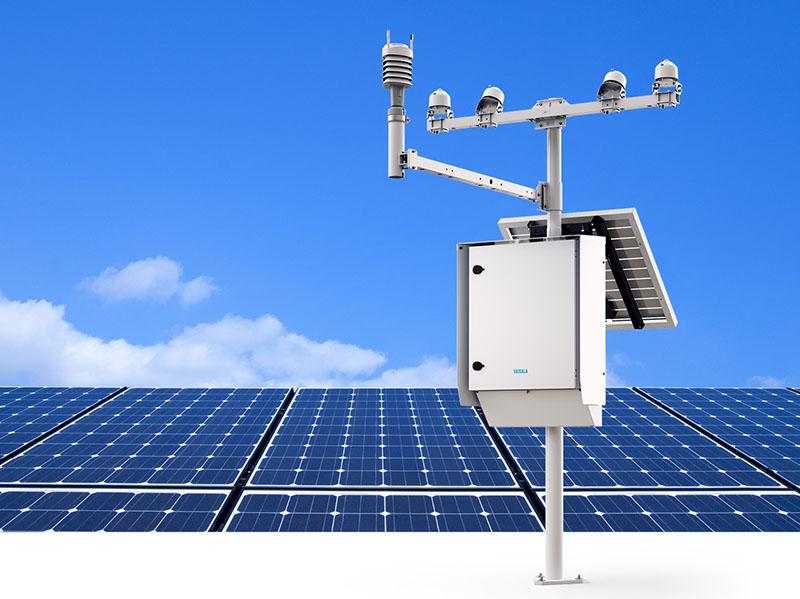Essential Tips for Establishing and Calibrating Your New Weather Stations
Essential Tips for Establishing and Calibrating Your New Weather Stations
Blog Article
Unveiling the Relevance of Using a Professional Weather Condition Terminal in Different Industries
In the realm of various markets, the usage of a professional weather terminal stands as an essential element in operational frameworks. The significance of exact weather condition data extends past simple meteorological fascination; it stands for a cornerstone for informed decision-making procedures. The ramifications of using a professional weather terminal transcend the surface level of information collection. By delving right into its diverse influence on security protocols, functional effectiveness, source administration, and industry-specific surveillance practices, a much deeper understanding arises of the pivotal duty such innovation plays in shaping the landscape of diverse industries (Weather Stations).
Enhancing Decision-Making With Accurate Data
Enhancing decision-making in industries is substantially facilitated by the usage of exact data obtained from expert weather condition stations. Trusted climate information is vital for different industries, consisting of agriculture, building and construction, transportation, and energy. By including information from professional climate stations into their decision-making procedures, sectors can make educated options that positively affect their operations.

Improving Safety Actions and Precautions

Moreover, professional climate terminals provide in-depth insights right into various atmospheric criteria like temperature, humidity, wind rate, and rainfall levels. This info is important for applying customized precaution based upon particular weather condition problems. Recognizing wind patterns can assist in safeguarding loose things or scaffolding to prevent accidents throughout solid gusts. Likewise, monitoring temperature level variations is crucial for executing heat anxiety avoidance actions in high-temperature settings. Generally, integrating information from specialist weather stations equips markets to prioritize safety and security and preemptively address weather-related risks, securing both personnel and possessions.
Boosting Operational Effectiveness and Efficiency
To maximize functional processes and make the most of result degrees in commercial setups, a critical usage of streamlined operations and data-driven understandings is vital. Professional weather stations play a crucial role in enhancing functional effectiveness and productivity across numerous sectors. By this page supplying real-time and accurate climate information, these stations enable companies to make enlightened choices that can positively influence their operations.
One substantial method climate stations add to increasing operational effectiveness is by assisting in source monitoring. With specific weather report, sectors can much better allot resources such as workforce, materials, and devices. Understanding in breakthrough regarding an upcoming storm can aid organizations adjust their timetables, making certain the safety of employees and preventing pricey hold-ups.
Additionally, professional weather terminals assist enhance power use - Weather Stations. Overall, incorporating an expert weather condition terminal into industrial procedures can result in smoother workflows, boosted performance, and eventually, enhanced profitability.
Optimizing Source Management and Planning
.jpg)

Professional climate terminals play a pivotal function in enhancing resource management and preparation within commercial operations by supplying important real-time data understandings. By precisely checking weather such as temperature, moisture, wind speed, and rainfall degrees, these weather condition stations enable industries to make informed choices relating to source allotment and planning. For instance, in agriculture, real-time weather condition data helps farmers determine the optimum timing for growing, watering, and gathering activities, leading to improved crop returns and resource performance. In the energy industry, expert weather stations help in forecasting wind patterns for wind ranches, allowing for better usage of wind energy resources. Moreover, in building and construction, checking climate conditions can help in scheduling outdoor tasks properly, reducing delays due to unfavorable weather. Overall, the specific information given by professional weather condition stations encourages industries to streamline their resource monitoring strategies, improve operational efficiency, and eventually boost their profits.
Ensuring Industry-Specific Weather Condition Tracking
Different industries have distinct weather condition level of sensitivities that can considerably affect their procedures. Building and construction firms require real-time climate updates to set up exterior tasks efficiently and guarantee employee safety.
Marine industries require comprehensive forecasts to navigate rough seas and avoid storms, while power firms check climate patterns to maximize eco-friendly power manufacturing. Stores track climate fads to change stock levels based upon anticipated why not check here need adjustments driven by weather. Tailoring climate surveillance services to specific market needs improves effectiveness, decreases downtime, and inevitably boosts overall performance and profitability. By investing in specialist climate stations made for industry-specific requirements, services can remain ahead of weather obstacles and make notified decisions to safeguard their procedures.
Verdict
To conclude, making use of a specialist weather station in various markets is important for enhancing decision-making, enhancing precaution, enhancing functional performance, maximizing resource monitoring, and making certain industry-specific weather condition tracking. By using exact and trusted data offered by a professional weather terminal, sectors can make educated decisions, alleviate risks, and optimize productivity. It is necessary for firms to purchase expert climate stations to stay in advance of the contour and maintain an affordable edge in today's rapidly transforming climate.
By utilizing a specialist weather station, industries can enhance their capacity to keep track of weather condition why not check here conditions accurately, permitting for proactive security protocols. By accurately monitoring weather condition conditions such as temperature, humidity, wind speed, and precipitation degrees, these climate terminals make it possible for markets to make informed decisions regarding resource allocation and planning - Weather Stations. In construction, checking climate problems can help in organizing outdoor jobs effectively, minimizing hold-ups due to adverse weather condition. By spending in expert weather terminals created for industry-specific needs, services can stay ahead of weather obstacles and make educated decisions to protect their procedures
In conclusion, the usage of a professional weather condition station in various industries is crucial for boosting decision-making, improving safety and security measures, enhancing operational efficiency, maximizing resource administration, and guaranteeing industry-specific weather surveillance.
Report this page